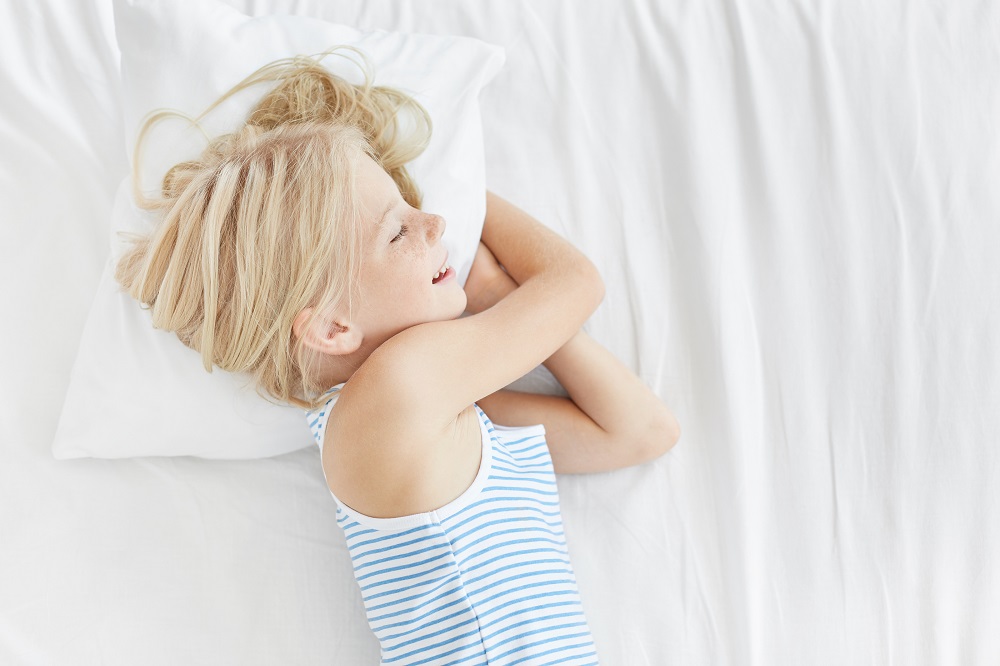Sleep apnea is a common sleeping disorder that affects an estimated 25 million Americans, which affects breathing during sleep. Breathing can become extremely shallow or even pause throughout the night, which can then become disruptive to the overall sleep cycle. This may not seem significant, but if left untreated, can result in a number of serious health complications.Sleep apnea is a common sleeping disorder that affects an estimated 25 million Americans, which affects breathing during sleep. Breathing can become extremely shallow or even pause throughout the night, which can then become disruptive to the overall sleep cycle. This may not seem significant, but if left untreated, can result in a number of serious health complications.
While most of those that have been diagnosed with sleep apnea, and many go undiagnosed, it is estimated that somewhere between 1 to 4 percent of children ages 2 to 8 years of age suffer from sleep apnea. As a parent, it is helpful if you can know what signs to look for to help you determine whether or not your child may suffer from sleep apnea so that you can take the proper steps to help get your child the proper care and help he or she may need.
For a more in-depth diagnosis of you or your child’s sleep apnea symptoms, contact the top sleep apnea doctor in New York City, and let Dr. Shukla get you back on the path to a healthy night’s sleep.
Below are some of the physical symptoms and signs that can be observed while your child is sleeping that may help you figure out if your child may be suffering from pediatric sleep apnea.
- Snoring: Snoring is a common symptom of sleep apnea, but it is not common in children. So, if your child is consistently snoring or snoring loudly, this is a clear sign that your child may be suffering from pediatric sleep apnea.
- Mouth breathing: Many sleep apnea sufferers breathe through their mouth while sleeping, which is the body’s natural response to try and get more air in and out of the body. It’s not uncommon that in addition to mouth breathing and snoring, for those with sleep apnea to snort or even cough from the obstruction of air going in and out of the body.
- Restless sleep: While it is not uncommon for children to toss and turn a little bit during the night, if they are restless throughout the night, then there’s something wrong with their ability to get a good night’s rest, which could be a sign of sleep apnea.
- Bed-wetting: Bed-wetting, particularly combined with the other symptoms noted, may be an indication of sleep apnea.
In addition to these observations during sleep, some other indications of pediatric sleep apnea include:In addition to these observations during sleep, some other indications of pediatric sleep apnea include:
li>Chronic fatigue
Treatment
If you believe that your child may be suffering from pediatric sleep apnea, the best thing to do is to contact your doctor and notify him or her of your concerns and observations. Your doctor should then be able to determine a diagnosis and proper treatment.
While some children outgrow pediatric sleeping disorders, leaving your child untreated is never recommended. Not only can sleep apnea present the danger of cutting off the oxygen supply to your child, but the disruption that it can cause in his or her sleeping patterns, can have a number of other serious consequences on your child’s health and development.
Treatment will be determined by a licensed healthcare professional and may include anything from lifestyle changes, mouthpieces, breathing devices and apparatuses, and potentially surgery. The goal is to restore a regular breathing pattern throughout the night, which then allows for quality sleep and adequate air supply to the body.
Sleep Apnea Doctor in New York City
Dr. Shukla has spent the last 15 years diagnosing and treating children with sleeping disorders of all kinds, including pediatric sleep apnea. He and his staff have helped provide children with the necessary treatment and care, while also providing parents peace of mind. If you or your child may be suffering from sleep apnea or some other sleep disorder, contact the top sleep apnea doctor in New York City at (917) 935-4864 or by e-mail at info@drmayankshukla.com to schedule an appointment.

